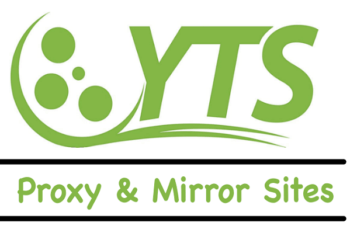Introduction
The world of slot gaming is a dynamic and ever-expanding industry, attracting millions of players worldwide. However, the popularity of slot games also raises concerns about responsible gambling, fairness, and security. To address these issues and ensure a safe and regulated gaming environment, various countries and jurisdictions have implemented strict regulations and licensing requirements for slot game operators. In this article, we will explore the importance of slot gaming regulations and licenses, how they work, and their impact on players and the industry.
- The Need for Regulation
1.1 Player Protection
One of the primary reasons for slot gaming regulations is to protect players from potential harm related to excessive gambling, addiction, and fraudulent practices. Regulations aim to promote responsible gambling behavior and provide resources for players who may need assistance.
1.2 Fairness and Integrity
Regulations help ensure the fairness and integrity of slot games. They require operators to use random number generators (RNGs) to determine game outcomes, guaranteeing that every spin is independent and unbiased.
1.3 Anti-Money Laundering (AML)
Slot gaming regulations also play a crucial role in combating money laundering activities. Licensed operators are required to implement robust AML measures to prevent their platforms from being used for illegal financial transactions.
- Licensing Authorities
2.1 Government Regulatory Bodies
In most countries, slot gaming regulations are overseen by government regulatory bodies. These authorities are responsible for issuing licenses, monitoring operators’ compliance with the rules, and imposing penalties for violations.
2.2 Offshore Licensing
In some cases, operators may seek licenses from offshore jurisdictions to offer their services in multiple countries. Offshore licensing can be a controversial topic, as some jurisdictions have looser regulations and oversight than others.
2.3 Independent Testing Agencies
Apart from licensing authorities, independent testing agencies also play a role in ensuring the fairness of slot games. These agencies audit slot game software and RNGs to verify their integrity and compliance with industry standards.
- Licensing Process
3.1 Application and Background Checks
To obtain a slot gaming license, operators must go through a rigorous application process. This typically involves background checks on the company’s owners, financial stability, and adherence to legal and ethical standards.
3.2 Compliance and Auditing
Licensed operators are required to comply with specific regulations and undergo regular audits to ensure their ongoing adherence to the rules. Audits may cover areas such as game fairness, security measures, and responsible gambling practices.
3.3 Financial Requirements
Licensing authorities often impose financial requirements on operators to ensure that they have sufficient funds to cover potential payouts and player withdrawals.
- Regional Variations in Regulations
4.1 Europe
In Europe, slot gaming regulations vary significantly from one country to another. Some countries have well-established regulatory frameworks, while others have more relaxed approaches to gambling.
4.2 United States
Slot gaming regulations in the United States are complex due to the country’s federal system of government. Each state has its own gambling laws, and regulations can differ widely from one jurisdiction to another.
4.3 Asia
Asia is a diverse region with a mix of countries that have various attitudes towards gambling. Some countries, like Macau and Singapore, have well-defined and strictly enforced regulations, while others have outright bans on gambling activities.
- Responsible Gambling Measures
5.1 Self-Exclusion
Responsible gambling measures often include self-exclusion programs that allow players to voluntarily ban themselves from accessing slot games for a specified period.
5.2 Deposit and Betting Limits
Licensed operators may set deposit and betting limits for players to help them control their spending and avoid excessive gambling.
5.3 Time Limits and Reality Checks
Time limits and reality checks are mechanisms that remind players of the duration of their gaming sessions and encourage breaks to prevent prolonged play.
- Online Slot Gaming Regulations
6.1 Age Verification
Online slot gaming regulations include age verification measures to ensure that only adults can access and play slot games.
6.2 Geolocation
Geolocation technology is used to confirm that players are within the legal jurisdiction where online slot gaming is permitted.
6.3 Data Protection
Regulations also mandate strict data protection measures to safeguard players’ personal and financial information.
- Impact on the Industry and Players
7.1 Industry Integrity
Slot gaming regulations play a crucial role in maintaining the integrity of the industry. They help weed out unscrupulous operators and protect players from unfair practices.
7.2 Player Confidence
Regulated slot gaming platforms instill confidence in players, knowing that they are playing on a fair and secure platform.
7.3 Responsible Growth
Regulations support the responsible growth of the slot gaming industry, ensuring that it operates ethically and contributes positively to the economy.
Conclusion
Slot gaming regulations and licenses are vital components of a well-functioning and responsible gaming industry. They protect players, ensure fairness, and promote responsible gambling practices. Governments and regulatory bodies worldwide continue to refine and adapt these regulations to meet the evolving needs and challenges of the gaming industry. As players continue to enjoy the excitement of slot games, they can do so with confidence, knowing that reputable operators are held to strict standards and regulations that prioritize their safety and enjoyment.












